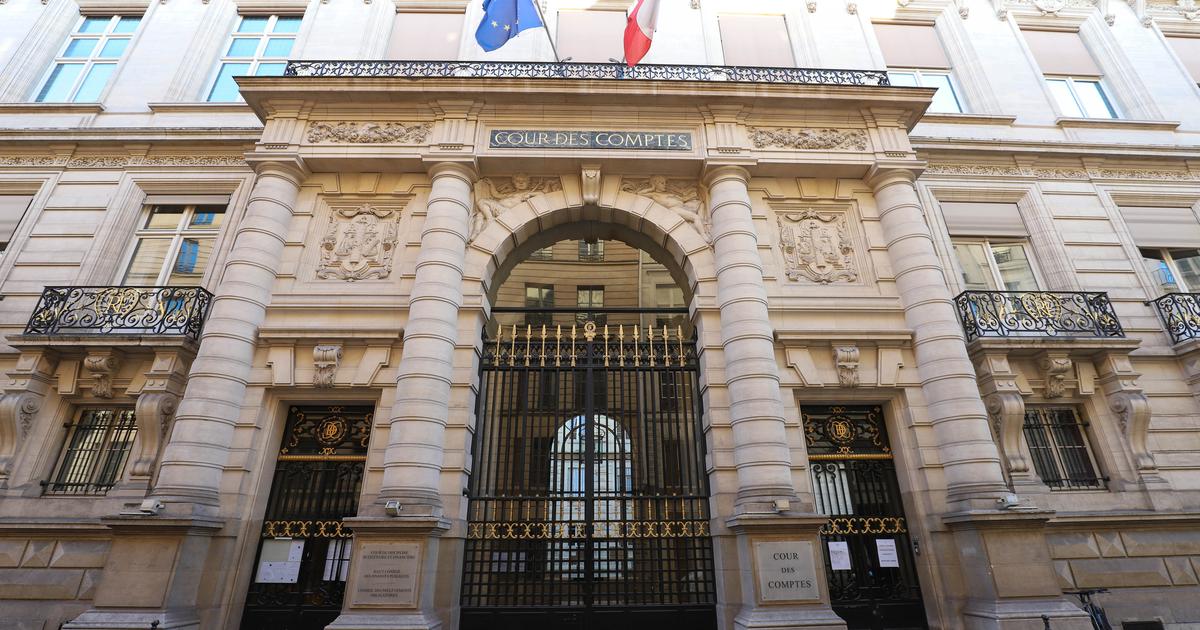The large values of the Spanish selective index, Ibex 35, worsened its accounting results over the past year. There are barely 10 companies but with such a large size that a bad exercise causes the collection of corporate income tax to be lost. Large banks, energy companies and telephone operators reduced their profits or even recorded large losses.
The Spanish energy multinational Repsol closed with losses of 3.8 billion euros for extraordinary operations. The company chaired by Antonio Brufau took advantage of 2019 to clean up its balance of the most polluting assets and launch its strategy against climate change. Telefónica, another of Ibex's heavyweights, reduced its profits by 65% due to the impact of its incentive leave plan. BBVA (won 35% less), Santander (17% less), Caixabank (14%) and Bankia (23%) also reaped worse figures than in 2018. In general, the large bank reduced its profits by almost 20% on average .
Tax collection of
societies
In millions of euros. In 2018, forecast.
In 2019, estimated annualized.
50,000
44,823
40,000
30,000
32,495
24,838
18,713
20,000
16,198
22,700
10,000
0
2005
2007
2010
2014
2019
Source: Tax Agency.
THE COUNTRY
Corporate tax collection
In millions of euros. In 2018, forecast.
In 2019, estimated annualized.
50,000
44,823
40,000
30,000
32,495
24,838
18,713
20,000
16,198
22,700
10,000
0
2005
2007
2010
2014
2019
Source: Tax Agency.
THE COUNTRY
Corporate tax collection
In millions of euros. In 2018, forecast. In 2019, estimated annualized.
50,000
44,823
40,000
30,000
32,495
24,838
22,700
18,713
20,000
16,198
10,000
0
2005
2007
2010
2014
2019
Source: Tax Agency.
THE COUNTRY
The great weight of these companies on the Spanish economy dragged the collection of corporate tax, which suffered a setback last year. Revenue from this corporate profit tax fell for the first time since the beginning of the economic recovery, it did not exceed the magic barrier of 25,000 million euros of revenue, as those responsible for the Ministry of Finance expected. And they are still far from the historical maximum reached in 2007, in the real estate bubble, when they reached more than 44,000 million euros.
The misbehavior of this tax at the end of the year has not been a surprise to the Minister of Finance, María Jesús Montero, because since the beginning of the year the large listed companies have already cut the fractional payments of the tax - some advances on account of their results futures that companies have to do in April, October and December.
"The second installment payment decreased by about 1.9 billion (13.7%) with respect to the same payment last year," the Tax Agency warned in the collection report corresponding to last November. “To understand this sharp fall, we must remember that last year the payments had a peculiar evolution, decisively influenced by the behavior of five large groups that pay taxes according to the minimum payment. These groups declared few benefits in the first payment and an abnormally high amount in the second. That resulted in a very high level of income in October 2018 that amply compensated for the bad results of the first payment. This year, when comparing with that period, there is a significant decrease in income in these five large groups, explains the Tax Agency.
Maneuvers in 2018
In 2018, when the PSOE reached power after the motion of censure, some large companies, which last year worsened their results, took the opportunity to repatriate dividends from subsidiaries abroad. Minister Montero announced as soon as she arrived that she wanted the big companies to pay more taxes - a minimum effective of 15%. In addition, he advanced that he wants Spanish companies to pay at least 5% for profits obtained abroad. Up to now, 100% of the dividends contributed by subsidiaries in other countries were exempt. Therefore, given the fear that the new Executive was going to raise taxes, some companies anticipated the payment in 2018 under more advantageous conditions than in the future. The comparative effect of last year, together with the worst results reaped by the large Ibex, has caused a setback in the collection of corporate tax.
The step back in this tax figure moves away from the Government's objective that the income it provides be equivalent to those obtained by the countries around us. The weight of corporate tax collection on GDP fell in 2019 to just over 2.3%, when the Community average is 2.8%. That is, Spain should raise some 6,000 million euros more for this tax to match Europe. Experts warn, however, that the characteristics of the Spanish business fabric, with few large or medium-sized companies, and almost all SMEs, make it more difficult to enter.
The Cayman Islands, USA and Switzerland, where there is more financial opacity
More than six billion euros. Or, what comes to be the same, five times the GDP of Spain. This is the astronomical figure that, according to IMF estimates, hides in tax havens around the world and subtracts tax revenues from the States. Despite the numerous initiatives that have been put in place to foster collaboration between jurisdictions and bring out the opaque hidden funds in offshore centers, there is still a long list of territories characterized by an unshakable banking secrecy, lax tax rules and little or no corporate transparency. And who heads it are not just paradise islands lost in the middle of the ocean.
The Cayman Islands, the United States and Switzerland are the worst-off territories in the Financial Secrety Index 2020 that the independent Tax Justice Network has just published. This index drinks from a myriad of variables that measure the degree of financial transparency of a territory to reflect “the potential damage” caused by each of them. The final result stems from the combination between the degree of opacity and the participation of each jurisdiction in offshore financial services over the global total.
The Cayman Islands, which belong to the United Kingdom, are at the top of the ranking. Its opacity level is not the highest - this leadership corresponds to the Maldives - but it is compensated by the large volume of funds that its financial system guards. Brussels has just included the archipelago to its black list of tax havens, just a few days after the Brexit was consummated.
Also in Switzerland, which is in third place, the amount of assets weighs more than the lack of transparency. The EU, however, has stopped considering it a pernicious territory thanks to the fiscal reform that it has implemented. The US, which occupies the second position, is another favorite destination for wealthier foreigners thanks to the attractiveness of tax regimes such as Delaware, a tiny state that has more and more companies than inhabitants.
Nor does the EU stand out in the photo: Luxembourg and the Netherlands occupy the sixth and eighth place in the ranking, respectively, over a total of 133 jurisdictions. A short distance away, in the 12th position, is the United Kingdom.
For this reason, the organization once again regrets the lack of firmness of Brussels in the face of the little transparent regimes that are within its borders, and that it avoids including in its list of tax havens. According to the report, the community territory is home to about a third of the total of the least transparent jurisdictions in the world, but the EU blacklist only includes 10% of the offshore territories that exist.





/cloudfront-eu-central-1.images.arcpublishing.com/prisa/ZUKHJYNBKFGELIR5I5JL4S2JY4.jpg)








